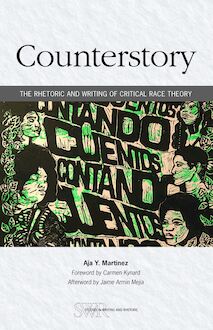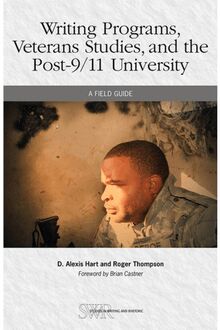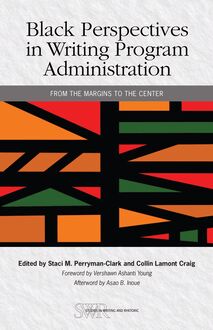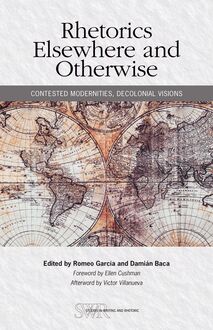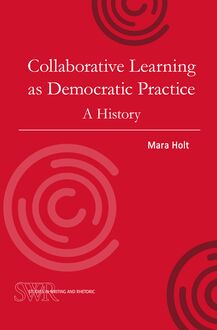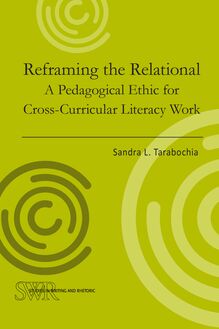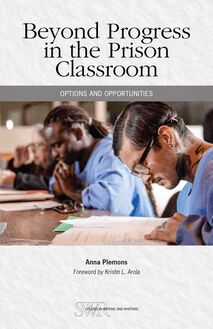-
 Univers
Univers
-
 Ebooks
Ebooks
-
 Livres audio
Livres audio
-
 Presse
Presse
-
 Podcasts
Podcasts
-
 BD
BD
-
 Documents
Documents
-
- Cours
- Révisions
- Ressources pédagogiques
- Sciences de l’éducation
- Manuels scolaires
- Langues
- Travaux de classe
- Annales de BEP
- Etudes supérieures
- Maternelle et primaire
- Fiches de lecture
- Orientation scolaire
- Méthodologie
- Corrigés de devoir
- Annales d’examens et concours
- Annales du bac
- Annales du brevet
- Rapports de stage
La lecture à portée de main
Vous pourrez modifier la taille du texte de cet ouvrage
Découvre YouScribe en t'inscrivant gratuitement
Je m'inscrisWriting Programs, Veterans Studies, and the Post-9/11 University , livre ebook
Découvre YouScribe en t'inscrivant gratuitement
Je m'inscrisEn savoir plus
Vous pourrez modifier la taille du texte de cet ouvrage
En savoir plus

Description
D. Alexis Hart and Roger Thompson offer rich academic inquiry into the idea of “the veteran” as well as into ways that veteran culture has been fostered or challenged in writing classrooms, in writing centers, and in college communities more generally.
For good reasons, the rise of veterans studies has occurred within the discipline of writing studies, with its interdisciplinary approach to scholarship, pedagogy, and community outreach. Writing faculty are often a point of first contact with veteran students, and writing classrooms are by their nature the site of disclosures, providing opportunities to make connections and hear narratives that debunk the myth of the stereotypical combat veteran of popular culture.
Presenting a more nuanced approach to understanding “the veteran” leads not only to more useful research, but also to more wide-ranging and significant scholarship and community engagement. Such an approach recognizes veterans as assets to the college campus, encourages institutions to customize their veterans programs and courses, and leads to more thoughtful engagement with veterans in the writing classroom.
About the CCCC Studies in Writing & Rhetoric (SWR) Series
In this series, the methods of studies vary from the critical to historical to linguistic to ethnographic, and their authors draw on work in various fields that inform composition—including rhetoric, communication, education, discourse analysis, psychology, cultural studies, and literature. Their focuses are similarly diverse—ranging from individual writers and teachers, to classrooms and communities and curricula, to analyses of the social, political, and material contexts of writing and its teaching.
Sujets
Informations
| Publié par | National Council of Teachers of English (NCTE) |
| Date de parution | 23 mars 2020 |
| Nombre de lectures | 0 |
| EAN13 | 9780814100288 |
| Langue | English |
Informations légales : prix de location à la page 0,1500€. Cette information est donnée uniquement à titre indicatif conformément à la législation en vigueur.
Extrait
CCCC STUDIES IN WRITING & RHETORIC
Edited by Steve Parks, University of Virginia
The aim of the CCCC Studies in Writing & Rhetoric (SWR) Series is to influence how we think about language in action and especially how writing gets taught at the college level. The methods of studies vary from the critical to historical to linguistic to ethnographic, and their authors draw on work in various fields that inform composition—including rhetoric, communication, education, discourse analysis, psychology, cultural studies, and literature. Their focuses are similarly diverse—ranging from individual writers and teachers, to work on classrooms and communities and curricula, to analyses of the social, political, and material contexts of writing and its teaching.
SWR was one of the first scholarly book series to focus on the teaching of writing. It was established in 1980 by the Conference on College Composition and Communication (CCCC) in order to promote research in the emerging field of writing studies. As our field has grown, the research sponsored by SWR has continued to articulate the commitment of CCCC to supporting the work of writing teachers as reflective practitioners and intellectuals.
We are eager to identify influential work in writing and rhetoric as it emerges. We thus ask authors to send us project proposals that clearly situate their work in the field and show how they aim to redirect our ongoing conversations about writing and its teaching. Proposals should include an overview of the project, a brief annotated table of contents, and a sample chapter. They should not exceed 10,000 words.
To submit a proposal, please register as an author at www.editorialmanager.com/nctebp . Once registered, follow the steps to submit a proposal (be sure to choose SWR Book Proposal from the drop-down list of article submission types).
SWR Editorial Advisory Board
Steve Parks, SWR Editor, University of Virginia
Kevin Browne, University of the West Indies
Ellen Cushman, Northeastern University
Laura Gonzales, University of Texas-El Paso
Haivan Hoang, University of Massachusetts-Amherst
Carmen Kynard, John Jay College of Criminal Justice
Paula Mathieu, Boston College
Staci M. Perryman-Clark, Western Michigan University
Eric Pritchard, University at Buffalo
Jacqueline Rhodes, Michigan State University
Tiffany Rousculp, Salt Lake Community College
Khirsten Scott, University of Pittsburgh
Jody Shipka, University of Maryland, Baltimore County
Bo Wang, California State University
Staff Editor: Bonny Graham
Series Editor: Steve Parks
Interior Design: Mary Rohrer
Cover Design: Pat Mayer
Cover Photo: Shannon P. Meehan
NCTE Stock Number: 75057; eStock Number: 75064
ISBN 978-0-8141-7505-7; eISBN 978-0-8141-7506-4
Copyright © 2020 by the Conference on College Composition and Communication of the National Council of Teachers of English.
All rights reserved. No part of this publication may be reproduced or transmitted in any form or by any means, electronic or mechanical, including photocopy, or any information storage and retrieval system, without permission from the copyright holder. Printed in the United States of America.
It is the policy of NCTE in its journals and other publications to provide a forum for the open discussion of ideas concerning the content and the teaching of English and the language arts. Publicity accorded to any particular point of view does not imply endorsement by the Executive Committee, the Board of Directors, or the membership at large, except in announcements of policy, where such endorsement is clearly specified.
NCTE provides equal employment opportunity (EEO) to all staff members and applicants for employment without regard to race, color, religion, sex, national origin, age, physical, mental or perceived handicap/disability, sexual orientation including gender identity or expression, ancestry, genetic information, marital status, military status, unfavorable discharge from military service, pregnancy, citizenship status, personal appearance, matriculation or political affiliation, or any other protected status under applicable federal, state, and local laws.
Every effort has been made to provide current URLs and email addresses, but because of the rapidly changing nature of the web, some sites and addresses may no longer be accessible.
Library of Congress Cataloging-in-Publication Data
A catalog record for this book has been requested.
For Captain Daddy Bud Hart, Alexis's military and professorial role model; Captain Shannon Meehan, who launched Roger on this journey; and all student veterans and those who aid their success, as writers and beyond
CONTENTS
Foreword
Brian Castner
Acknowledgments
Introduction: Theorizing the Post-9/11 Veteran
1. Writing (Veterans) Studies
2. The Rhetoric of the GI Bill: Defining Veteran Education
Writing/Practices 1: Student Voices/Writing Genres
3. Transferring Veteran Knowledge
4. Developing Veteran-Informed Classrooms
5. Engaging Veteran Trauma
Writing/Practices 2: Pedagogy and Programs
Conclusion: Assets and Avenues
Notes
Works Cited
Index
Authors
FOREWORD
“ AMERICAN CULTURE IS , at this time, a culture of war.”
So write Alexis Hart and Roger Thompson in this insightful and thoroughly practicable guide to teasing stories out of American student veterans. They are quite right, it is a culture of war, though one typical of our times, another facet of our consumption.
Twenty-first-century American war culture is a war to binge watch on YouTube. It's a war in Marvel Universes, where the bad guys are both bad and helpfully uniformed. It's a Call of Duty war, and a Thank You for Your Service before football games war, and a camo leggings at Forever 21 war, and a Facebook post to remember that #21VeteransADay commit suicide war.
This war is certainly—and fortunately, this must be said up front—not an experience to be lived war, at least not by the vast majority of Americans.
And therein yawns the gap.
In modern parlance, we often call this the civilian-military divide—though as any refugee escaping conflict can tell you, it is really a division between anyone who has felt the terror of personal violence and those who haven't. This gap has felt particularly acute over the last twenty years; America does not tell a shared wartime story. “After 9/11, the military went to war, but America went to the mall,” goes the old refrain.
The phenomenon isn't new; as long as humans have fought war in a place other than their homes, there has existed an experiential division between those who fight the war and those who send them. What is new is not the gap, then, but the contemporary illusion that the gap can be bridged by sufficient quantities of consumer electronics. That the internet can bring us together in moments of shared empathy, and that therefore, by extension, if I play enough levels of the latest Modern Warfare I know what the real thing feels like. The mirror and the image get confused.
This illusion is only challenged in those few places where civilians and veterans mingle and share ideas. Which is why if we truly want to work on closing this divide in our country, college classrooms will be one of the best places to do it.
Over the last several decades, universities have begun to seek diversity as an inherent good, and veterans going back to school have been swept up in this effort, for reasons altruistic and financially cynical, as the Post-9/11 GI Bill has both greatly expanded educational opportunities for veterans and offered a tuition windfall to higher education institutions.
Including veteran status as marking diversity—in the same way as do race, gender, and sexual orientation, for example—has always made me personally uncomfortable. After all, unlike other demographic groups (many, but not all, of which are also federally protected classes), being a veteran is self-chosen, 1 at least as long as we have an all-volunteer military.
But I can see the argument. Veterans do genuinely add to the diversity of a campus and help break down, at least slightly, the civilian-military divide. It is easier to separate than unite, though, so that civ-mil chasm is shrunk only fitfully, one by one, as veterans sit next to traditional college students and maybe even have conversations.
No matter what their branch of service or specific story, nearly all veterans have had experiences in their past that distinguish them from average 18-year-olds. Veterans are almost always at least four years older, and in that added time have moved from their hometowns to new parts of the United States, have perhaps lived in foreign countries, learned to be in a minority ignorant of the local languages, become aware of the economic abundance of the United States. College is not their first time away from home.
None of this is to imply that veterans themselves reach college with a united or “typical” experience. As Hart and Thompson note, the term veteran itself is hardly precise, considering a wide range of possible backgrounds. Not only does each service—Army, Navy, Air Force, Marine Corps, Coast Guard—have its own distinct culture, geography, and, in a real sense, language, but the dispersed nature of our technological society and the geographic spread of the “War on Terror” have put to bed any notion of a cohesive veteran experience. A drone pilot in Nevada sees more “combat” than a gate guard stuck on a large logistics base in central Iraq.
So, what, if anything, does unite today's veterans?
In his survey of Iraq and Afghanistan war literature for the New Yorker, George Packer argues that the uniting image or symbol of this war—like the trench for World War I and the jungle for Vietnam—is the homecoming. No matter where we went, and no matter what we did, we all came home, vertical or horizontal. And more than that, because the wars in Afghanistan and Iraq and Pakistan and Syria and Libya and Somalia continue,
-
 Univers
Univers
-
 Ebooks
Ebooks
-
 Livres audio
Livres audio
-
 Presse
Presse
-
 Podcasts
Podcasts
-
 BD
BD
-
 Documents
Documents
-
Jeunesse
-
Littérature
-
Ressources professionnelles
-
Santé et bien-être
-
Savoirs
-
Education
-
Loisirs et hobbies
-
Art, musique et cinéma
-
Actualité et débat de société
-
Jeunesse
-
Littérature
-
Ressources professionnelles
-
Santé et bien-être
-
Savoirs
-
Education
-
Loisirs et hobbies
-
Art, musique et cinéma
-
Actualité et débat de société
-
Actualités
-
Lifestyle
-
Presse jeunesse
-
Presse professionnelle
-
Pratique
-
Presse sportive
-
Presse internationale
-
Culture & Médias
-
Action et Aventures
-
Science-fiction et Fantasy
-
Société
-
Jeunesse
-
Littérature
-
Ressources professionnelles
-
Santé et bien-être
-
Savoirs
-
Education
-
Loisirs et hobbies
-
Art, musique et cinéma
-
Actualité et débat de société
- Cours
- Révisions
- Ressources pédagogiques
- Sciences de l’éducation
- Manuels scolaires
- Langues
- Travaux de classe
- Annales de BEP
- Etudes supérieures
- Maternelle et primaire
- Fiches de lecture
- Orientation scolaire
- Méthodologie
- Corrigés de devoir
- Annales d’examens et concours
- Annales du bac
- Annales du brevet
- Rapports de stage
